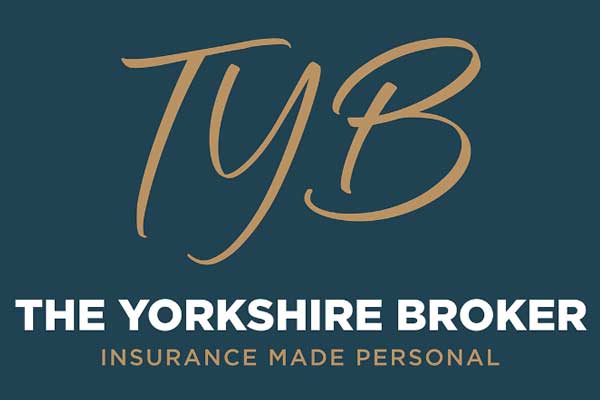Whether you’re starting a small business, or you’ve been running for some time, one of the most important things to consider as a business owner is your insurance cover. If you’re new to running a business, the world of insurance, the multitudes of different types of cover, policy wording and insurance providers can be hard to understand. Which is why we’ve put together this simple and straightforward checklist for small business owners, covering all you need to know about insurance.
An Insurance Checklist for Small Business Owners
Insurance Made Personal
What needs to be covered?
Premises
If you own or lease premises for your business, you’ll want to ensure you’re protected against damage to the property. Insurance can protect you should your business premises be subject to fire, flooding, vandalism or other damage.
Stock
Businesses that supply goods should seriously consider insuring their stock. If your products get damaged or stolen, that means lost profits and extra costs for you.
Employees
You’re legally required to take out insurance if you employ people. This covers you if an employee is injured or becomes ill during the course of their work for you.
Advice
Businesses that provide specialist advice or skilled services can be at risk of claims should they give mistaken or negligent advice. If your client suffers financial loss as a result of your advice, they can sue you for damages.
Equipment
Tools and business equipment can be expensive to replace. Ensure your equipment is covered against loss, damage or theft. Whether that’s IT equipment, tools or machinery.
Vehicles
Driving to and from jobs? Or delivering goods? If you use any vehicles in the running of your business, you are legally required to buy the correct level of cover. This goes for vehicles used by your team, too.
Profits
What happens if money is stolen from your business? Or a client goes bankrupt and fails to pay? Protect your profits, so you aren’t left out of pocket.
What requires cover will depend on the nature of your business. A shop owner, for example, will need different cover to a plumber.

What types of insurance are available?
Public liability insurance
If you have customers visiting you, or you visit them, you should consider public liability insurance. If a customer is injured or their property is damaged on your premises, you could be liable. The same is true if you cause damage when you’re visiting their home.
Public liability can also include product liability. So, if one of your products causes injury, illness or damage, you’ll be covered against claims.
Employers’ liability insurance
This is a legal requirement for businesses that employ people. Even if you only employ one other person, you’re required to have adequate employers’ liability insurance. Cover must be for a minimum of £5m and must begin as soon as your employees start. If you aren’t covered, you could be fined up to £2,500 per day. Employers’ liability is also required for part time and temporary staff.
Professional indemnity insurance
If you provide knowledge, skills or advice to clients, there’s a risk that advice might lead to financial losses for them. Especially if it was due to a professional error or negligence. If your client decides to take you to court, professional indemnity insurance will cover you for legal costs and compensation.
Equipment cover
Equipment cover will protect you should your equipment or tools get damaged or stolen. If you’re a small business, replacing equipment can be very expensive. And you don’t want to risk losing profits because you no longer have the equipment you need to get the job done. By insuring your equipment, you’re protected in case you need to buy new equipment, fast.
Stock insurance
Similar to equipment insurance, stock insurance will cover you for stock that is stolen or damaged. If you keep stock at home or at your business premises, you can get the right cover.
Buildings and contents insurance
Protect your business premises with buildings insurance. If there’s an unforeseen event such as a fire or flood, you can claim for damage to your property, including repairs and costs associated with getting your business back up and running.
If you work from home, your standard home and contents insurance may not cover you for your business losses. In fact, if you run your business from home, this could affect your home insurance policy, meaning any claims you make may fail.
Cyber insurance
If you handle people’s sensitive information, such as payment details, your systems could be at risk of cyber crime or hacking. If your business is found to be guilty of a data breach, you will be liable. Cyber insurance will protect you for the costs associated with cyber attacks.
What to do
Buying insurance shouldn’t be overcomplicated.
You can buy your business insurance as a package that’s specially tailored to cover everything you need to protect. You can buy either directly from an insurer, or by going through a broker.
We’d recommend doing your research about the types of insurance cover you might need, as well as searching for reliable brokers (or insurers). Check online reviews or speak to other business owners. After all, you don’t want an insurer who rarely pays out on claims.
You’ll also need to take stock of all your business assets. This includes premises, stock, equipment, vehicles and employees. You should also have records detailing your annual turnover and any debts owed. The type of policies you can get will depend on the type of business you run, your turnover, number of employees and your claims history, among other factors.
The next step is to get in touch with a broker (if you’re using one) to discuss your business insurance needs. They’ll be able to advise you and work with you to ensure the policies available to you cover exactly what’s needed.
For advice and support from a reliable, experienced broker in [broker_county], contact The Yorkshire Broker now on 01924 929070. We can help you and your small business.


